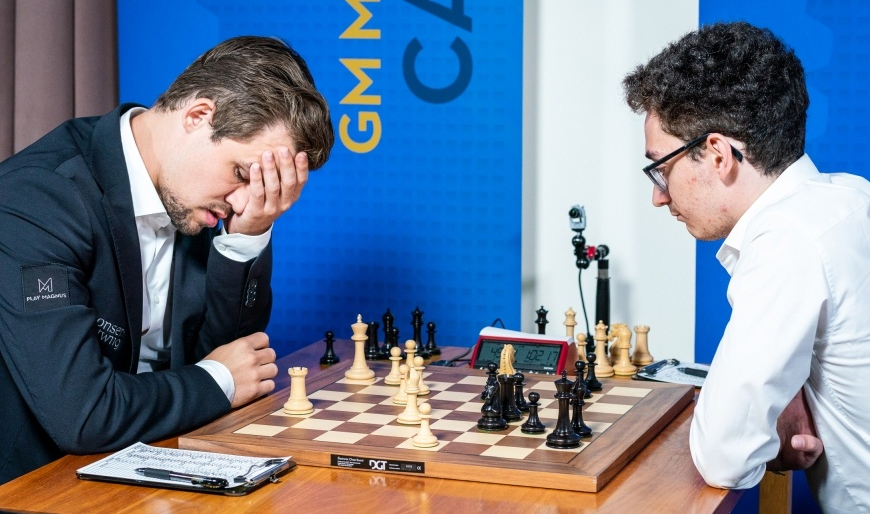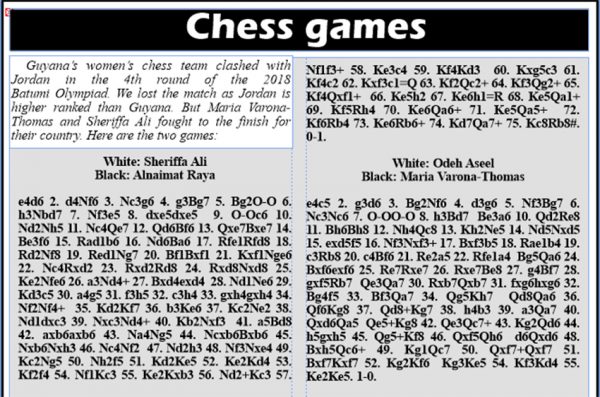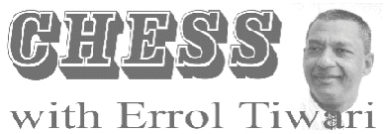
Guyana’s progressiveness in chess hinges on spreading the royal game to the four corners of the country. In the interim, the chess fraternity would be pleased for the game to be promoted substantially in Essequibo and Berbice. The Guyana Chess Federation (GCF) may wish to do so with all practicable speed if we intend to breathe in the oxygen of success.
As it is with every other chess nation, the talent, sometimes, does not emanate from the capital. Nellisha and Waveney Johnson, sisters, learned their chess in Orealla. And Nellisha represented Guyana at last month’s chess Olympiad in Georgia. She played faithfully and with verve. Additionally, the ‘Queen of Katwe’, the teenage chess superstar, did not originate from the capital of Uganda. There is a general feeling among chess players that natural talent in Guyana is likely to come from the capital and within the regions. In time, the Essequibo and Berbice national championships would be implemented to join Demerara in one grand finale to crown the national chess champion of Guyana. For the 2019 national chess championships, I am hoping to see the two London brothers from Rosignol. They play well.
It may be worthwhile for the GCF to sharpen its participation skills for the 2020 Chess Olympiad by modifying its annual tournament schedule to complement the structure of the said competition. If a two-hour thinking time is allowed per player, per game, the identical timing should be considered for local competitors.
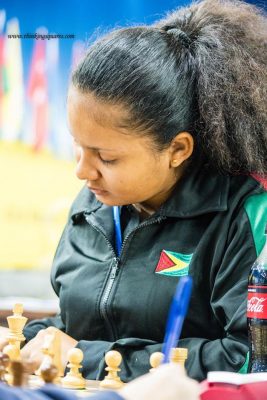
This may be difficult for an employed tournament director (TD), but it will provide inspiration for our players. That is the reason why the chess column recommended David Khan, a seasoned retired assistant TD for the job. The column stated further that the position should be a salaried one. That methodology could be worked out.
Guyana’s best chance of securing a new title is through the Olympiad. Working our way through the Olympiad is the simplest way of claiming grand master status. The World Chess Federation (FIDE) has fashioned it in this manner to create more titled players, grand masters included, worldwide.
The World Chess Championship between Magnus Carlsen, 27, and Fabiano Caruana, 26, began on Friday in London. The competitors are ranked 1 and 2 in the chess world according to their FIDE ratings: 2835 for Carlsen, and 2832 for Caruana. Only four chess players worldwide have touched the 2800 mark, according to the November 2018 FIDE rating list. The scale, therefore, is evenly balanced for the world championship match.
The USA, through Caruana, is aiming to dethrone Norway’s Carlsen and become the new world champ. Needless to say, that would be a difficult task, but not an impossible one.
The last time the USA won the world chess championship was in 1972 when Bobby 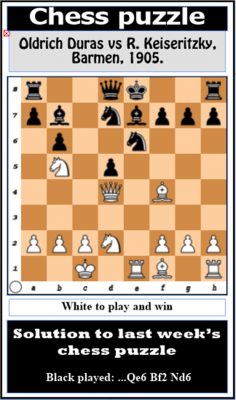
In the Carlsen-Caruana match, the ratings are just about equal, hence the match can go either way. But Carlsen faced Viswanathan Anand twice previously, and Sergey Karjakin once, as world championship challengers, and defeated them both. Spanish grand master Miguel Illescas explored all of the games in the classical mode which were contested between Carlsen and Caruana. Following an exhaustive analysis, Illescas’s prognosis was that Carlsen possessed a 57% chance of winning to Caruana’s 43%. The match is a 12-game series and ends on November 28.
